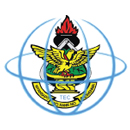Miss Queenstar Naa Atswei Ablorh of the Ghana Alliance for Clean Cookstoves and Fuels (GHACCO) has called for the adoption of flexible financing models such as pay-as-you-go and pay-as-you-cook to make clean cooking solutions more accessible to low-income households in Ghana.
She made this call during a webinar series organised by Climate Compatible Growth in collaboration with the Brew-Hammond Energy Centre, under the theme “Fueling Change: Tracing the Evolution of Ghana’s Clean Cooking Sector – Regulatory, Financial, and Business Perspectives.”
According to Mrs. Ablorh, Ghana’s clean cooking agenda continues to face systemic challenges, including high costs of electric cooking appliances, unreliable electricity supply, limited availability of LPG, and low public awareness. These barriers, she noted, disproportionately affect low-income communities and hinder the country’s ability to transition to modern and sustainable cooking methods.
While acknowledging efforts by some private sector actors to introduce innovative products such as electric hot plates and stoves, she pointed out that adoption remains low among vulnerable groups. A small study conducted in Madina, she shared, revealed that most residents considered these appliances unaffordable unless flexible financing options, such as pay-as-you-go, pay-as-you-cook, or installment payment schemes were made available.
“Electricity instability is still a challenge in many homes,” she stated. “People can barely afford electricity for basic household use. So, how much more for cooking? Clean cooking must be made both affordable and accessible.”
Miss Ablorh also stressed the importance of consumer education, targeted research, and the development and funding of alternative technologies such as biogas, which remain significantly underutilised. She called on government and energy stakeholders to strengthen regulatory enforcement, invest in after-sales services, and promote regional and cross-border market collaborations to accelerate progress in the sector.
“Looking ahead to 2030, we must ask ourselves: is clean cooking adoption truly a choice or is it a necessity we’ve delayed for too long?” she questioned. “Success in this sector will mean accessible, affordable, and widely adopted clean cooking options across Ghana. The time to act together is now.”

The workshop ended with a Q&A session, during which participants exchanged ideas and shared perspectives on the practical steps Ghana must take to achieve universal access to clean cooking by 2030.

